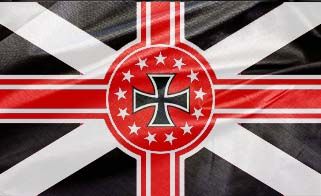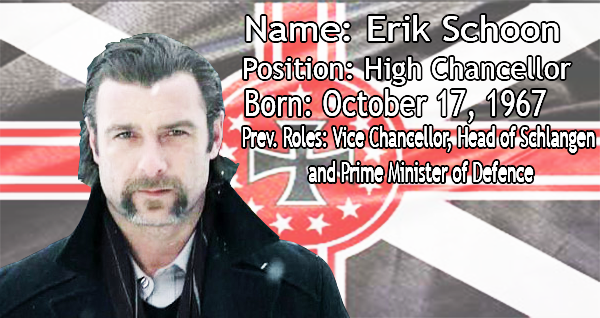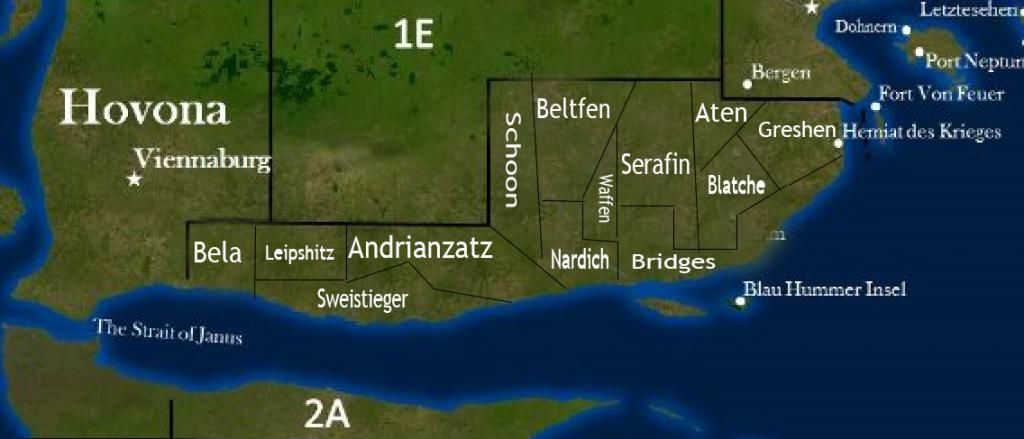Nation/ankou
Der Vereinigten Republik Ankou (The United Republic of Ankou)
Ankou Flag:

(The Black represents the dark past of Ankou, the Red represents the blood that was shed for the betterment of the nation, the 13 stars represent the 13 states of The United Republic of Ankou, the cross represents the strength and ruthlessness the people of The United Republic of Ankou hold in their hearts, and the White represents the departure from the dark days and Ankou's metephorical flight into a purer nation to see better days.
RP Population: 81.89 Million
Capital: Erika
National Anthem: Erika (https://www.youtube.com/watch?v=fc-DgRO1SrQ)
National Animal: Grey Wolf (Grauer Wolf)
National Currency: Marks (*)
National Languages: Heer (dialect specific to Ankou)
Amen Heer and Dunkle roots
Leader: High Chancellor Erik Schoon

13 States of Ankou:

Origin of Ankou:
The United Republic of Ankou has its roots embedded in The Kingdom of Aemen's history, specifically through the Heer resurgence that was led primarily by Elector Jonathun Calvel. The Aemen noble, together with the fortune his estate provided him and his most devout followers, renounced his title and fled the country before the Aemen King could enact anymore laws that restricted the practice of Heer customs. After a turbulent journey, the exodus landed Calvel and his people in the south-eastern part of the continent. (what's the name of the continent, by the way?) It was here that they settled and marked the area as 'Afkomst', an ancient Heer word used to refer to origins and births. Soon, Calvel and his followers would come into contact with the Dunkles, groups of nomads that roamed the northern landscape. With Heer pride at its peak, the resurgence saw the Dunkles as a threat to their existence. Calvel resolved to push northwards and force the Dunkles into a war that would forever shape the future of Ankou, a war known simply as Krieg der Blut. The Heer resurgence organised its military wing into units known as Lokions. Wilhelm Schoon, a prominent young commander of the 13th Lokion Infantry Force, scored a major victory at the Herculaneum, earning him the respect of Calvel's high command and forever cementing his place as a hero of the resurgence. After the battle at the Herculaneum, the Dunkles could never fully recuperate their losses and were forced to surrender lest they face genocide, but mass graves were not what Calvel had planned for the Dunkle survivors. Though Heer tradition outlines that no prisoners of foreign blood should be taken, the Dunkle women and children were allowed to live, not through kindness or morality, but because without them, the Heers' genetic diversity would be threatened and future generations could potentially inbreed to the point where a stable society wouldn't be achievable. While most of Calvel's people agreed to this and started families with the surviving Dunkles, some of the more zealous Heer turned their nose at the prospect, and intended to keep their bloodlines 'untainted' for as long as possible. With the perceived threat of the Dunkles now eliminated, an elderly Calvel, aided by a newly-promoted General Wilhelm Schoon, spread his influence across the entire continent and formed a new republic, declaring himself the young nation's Chancellor General-At-Arms, the supreme head of state and government, with Wilhelm Schoon as his successor. This, however, was to be Calvel's final act for his people. Ten years after the formation of Ankou, Jonathun Calvel died after contracting a disease similar to polio. As the state's founder, he was given a funeral that was worthy of his status and a mourning period was declared as the nation wept for its devoted and ardent leader. Wilhelm Schoon assumed the office of Chancellor General-At-Arms after the period concluded. In his inauguration speech, Schoon vowed that Ankou, Calvel's dream as he referred to it, would live for the glory of the future, a future that the many people of Ankou all had a right to share in.
